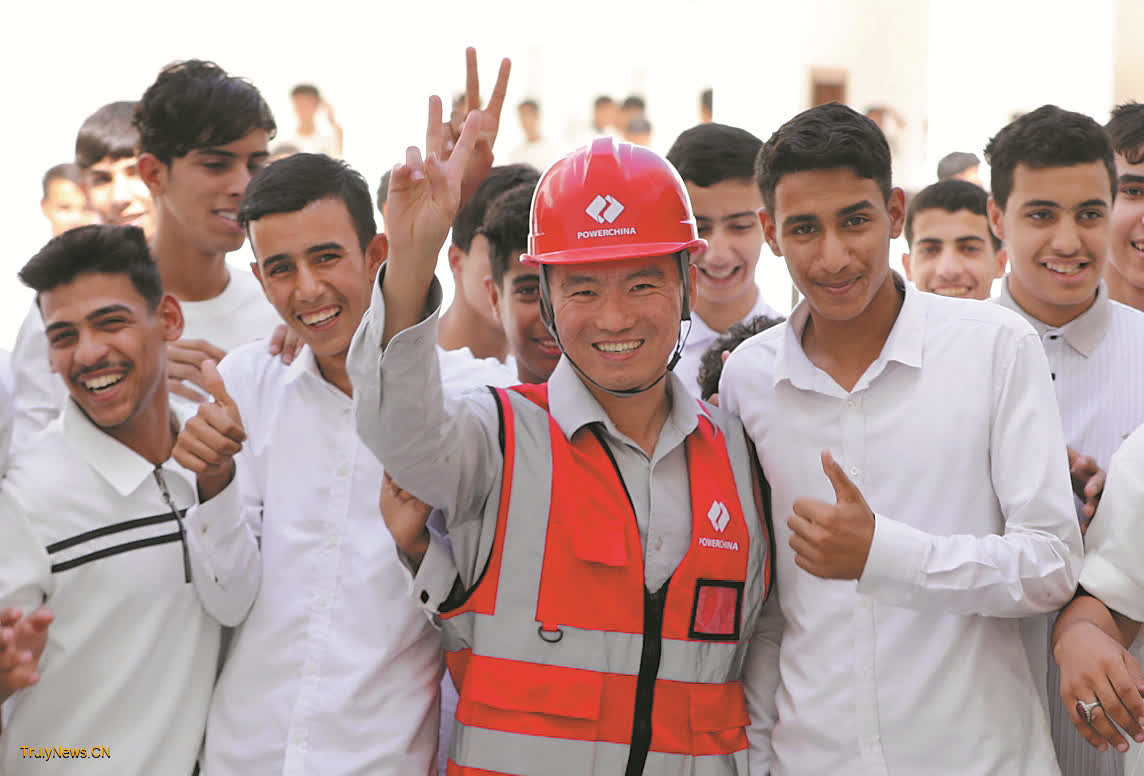
Students with an engineer of the PowerChina group, which helped rebuild the Muthanna high school, in Iraq on Oct 8. (Photo/Xinhua)
As the school bell rang, students hurried into their classrooms. The lively courtyard fell silent, allowing the cheerful sounds of reading to stand out.
The scene unfolded at a model school built with the help of Chinese experts in Muthanna, Iraq.
The school, set up by the Power Construction Corporation of China (PowerChina), spans 3,500 square meters and accommodates about 1,200 students. It features modern facilities designed to enhance the learning environment.
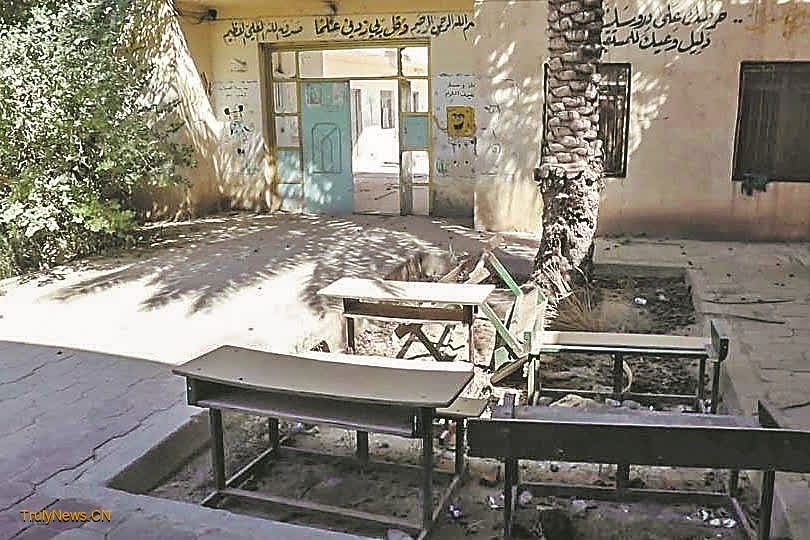
A photo of the school before its reconstruction. Students had to take lessons in the open. (Photo/Xinhua)
Iraq has completed the construction of 500 new schools nationwide, with an additional 500 set to be finished by the end of the year. The effort is part of a multiphase initiative to improve the country’s educational infrastructure, as reported by the Iraqi News, a local online newspaper.
Kareem Al-Sayed, spokesperson for Iraq’s Ministry of Education, said that the schools are being constructed under Iraqi-Chinese initiatives. Many provinces are in the advanced stages of school construction, according to the ministry.
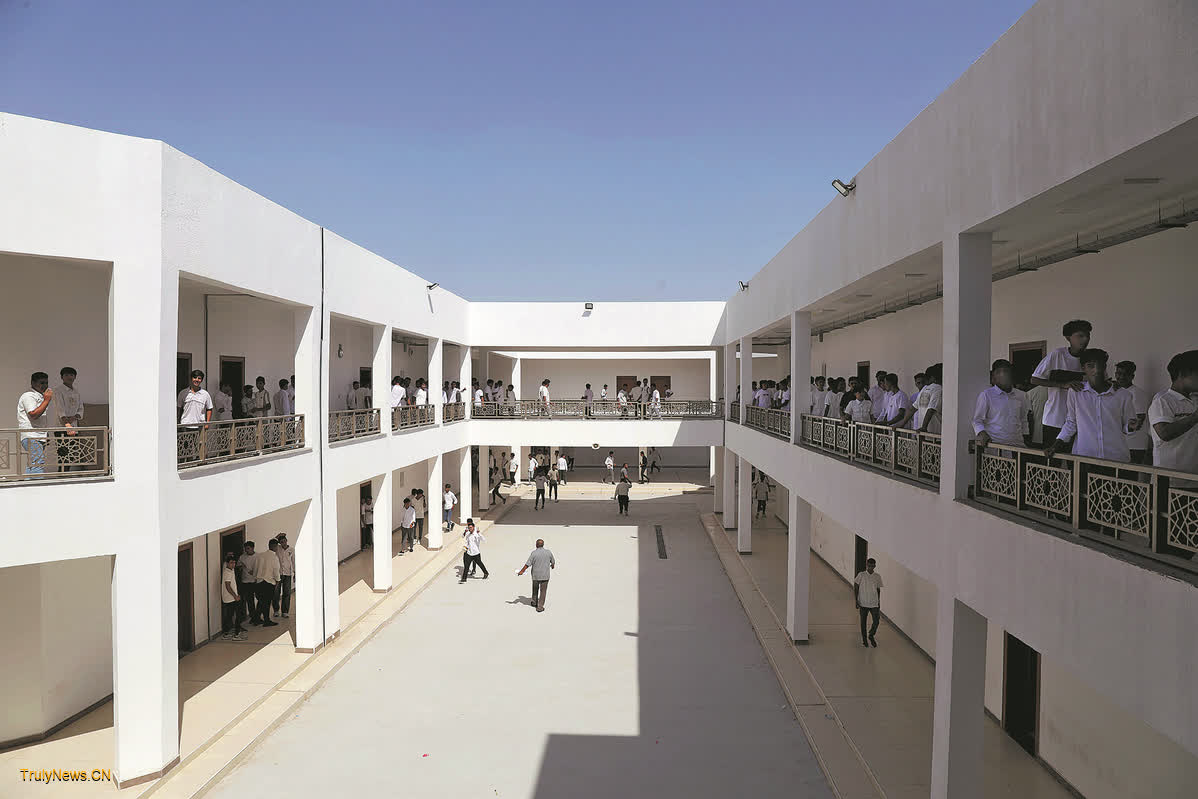
The school after its reconstruction, which allows it to hold about 1,200 students. (Photo/Xinhua)
In 2021, several Chinese companies signed contracts with Iraq to build 1,000 schools as part of a broader move to construct 8,000 schools across the country. Power-China is responsible for 679 of these schools across 10 provinces, following the initial tender for 1,000 schools.
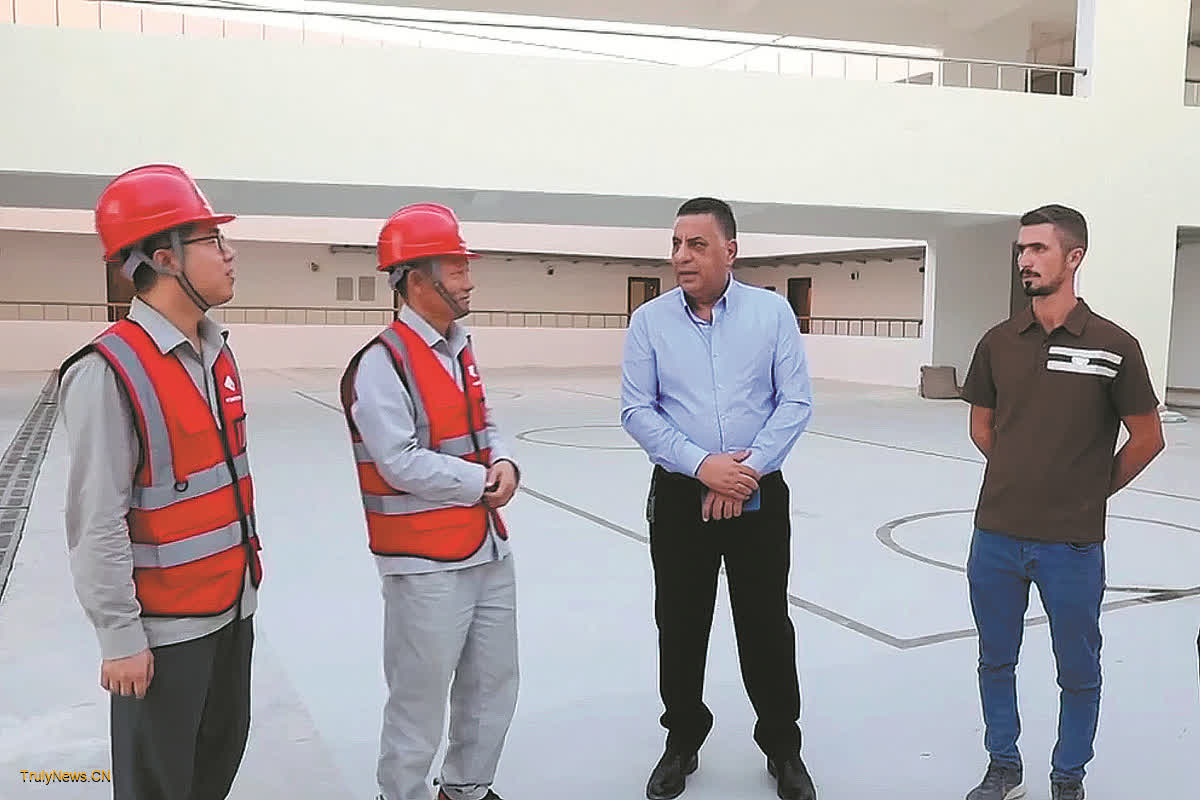
Chinese engineers from the PowerChina company with local personnel at the school on Oct 8. (Photo/Xinhua)
Li Chuansong, project manager for PowerChina’s model school in Muthanna, said that the company has completed 53 schools in this province, providing educational spaces for over 50,000 local students.
“The local community refers to these well-equipped, high-quality schools as ‘Chinese schools’,” Li said in an interview with Xinhua News Agency.
Educational challenges
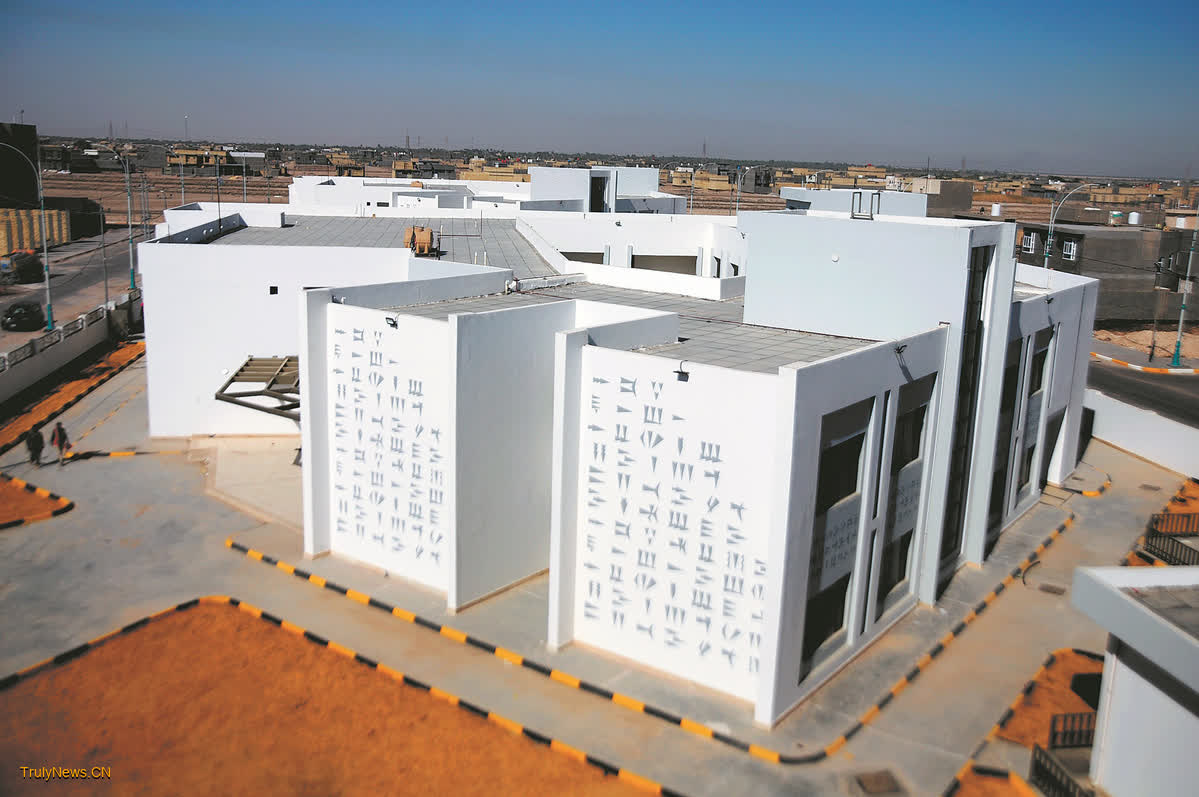
An aerial view of the model school rebuilt with the help of PowerChina on Oct 8. (Photo/Xinhua)
According to the United Nations Educational, Scientific, and Cultural Organization, Iraq’s once exemplary education system, which boasted nearly 100 percent primary enrollment in the 1970s, has drastically declined due to wars, violence, and political instability.
Assafir Al-Arabi, an independent media platform in the Middle East, said that “following the US invasion of Iraq in 2003, the collapse in the education sector was clear, both in statistical data and in observable reality”.
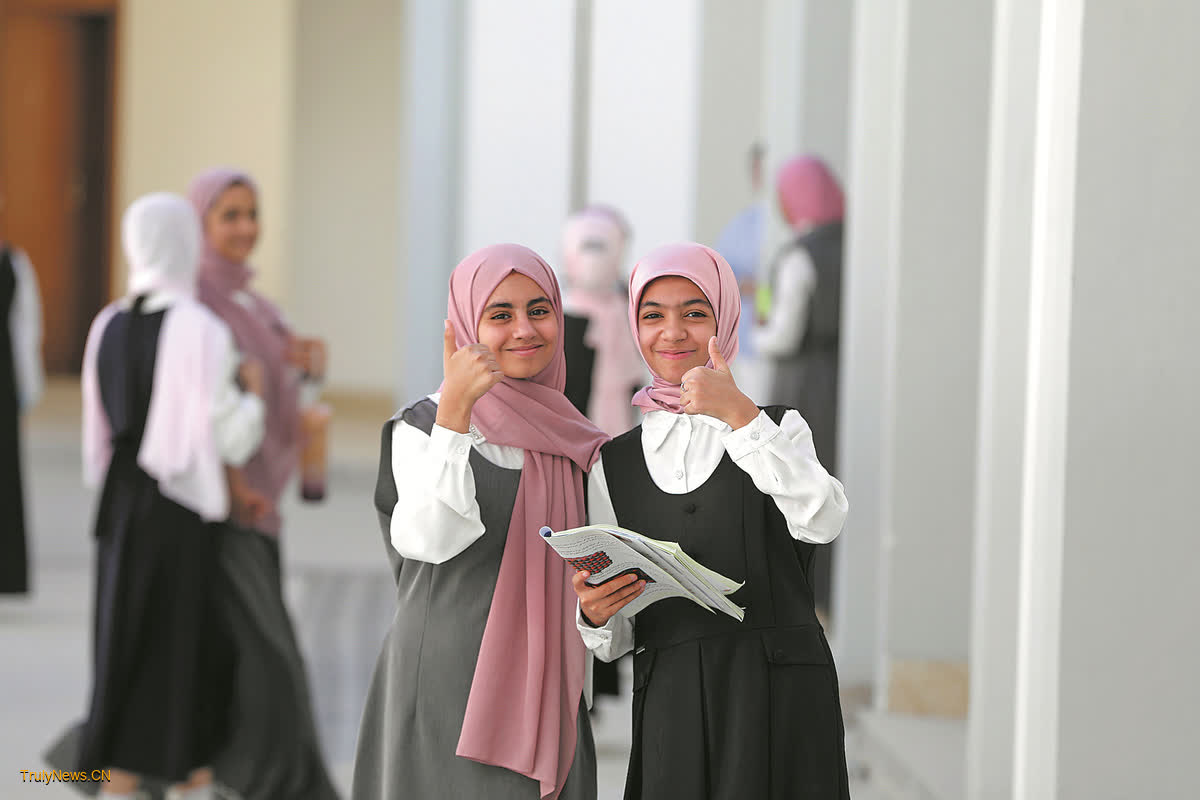
Students at the corridor of the reconstructed school in Muthanna, Iraq, on Oct 8. (Photo/Xinhua)
“Iraq and its education sector were plunged into the Dark Ages. During those years, the infrastructure and overall moral foundation of the education system were destroyed,” it said, adding that the public spending rate, which used to be $675 a student in 1978, dropped to less than $29 a student annually during the years of occupation.
School dropout rates have reached 35 percent in elementary schools and 45 percent in high schools, according to the latest figures. United Nations International Children’s Emergency Fund stated that 3.2 million Iraqi school-age children have dropped out of school.
In December 2022, Iraqi Prime Minister Mohammed Shia Al-Sudani said that Iraq required 8,000 new schools to address significant educational infrastructure deficits.
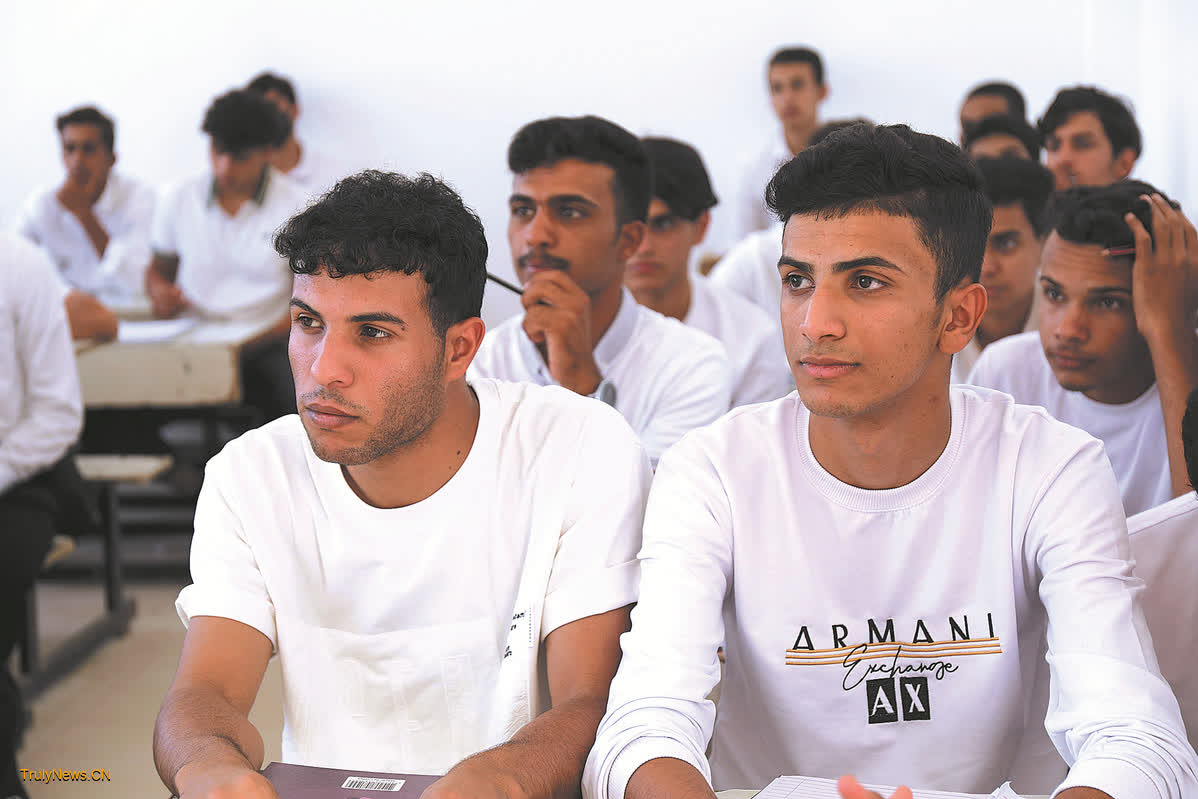
Students take lessons at the reconstructed school in Muthanna, Iraq, on Oct 8. (Photo/Xinhua)
At the time, over 1.4 million new students were preparing to enter schools, with many — carrying their new backpacks and bidding farewell to their parents — facing the prospect of sitting on the floor in a mud-built classroom that could potentially collapse at any moment.
Saif Farhan, a representative of the Iraqi government overseeing school construction projects, said that decades of conflict have severely damaged the country’s educational infrastructure, further exacerbated by insufficient reconstruction efforts, as reported by Xinhua.
“The Iraqi government was eager to contract with accredited international companies, and PowerChina, with its extensive construction experience, was one of the first chosen,” Farhan said.
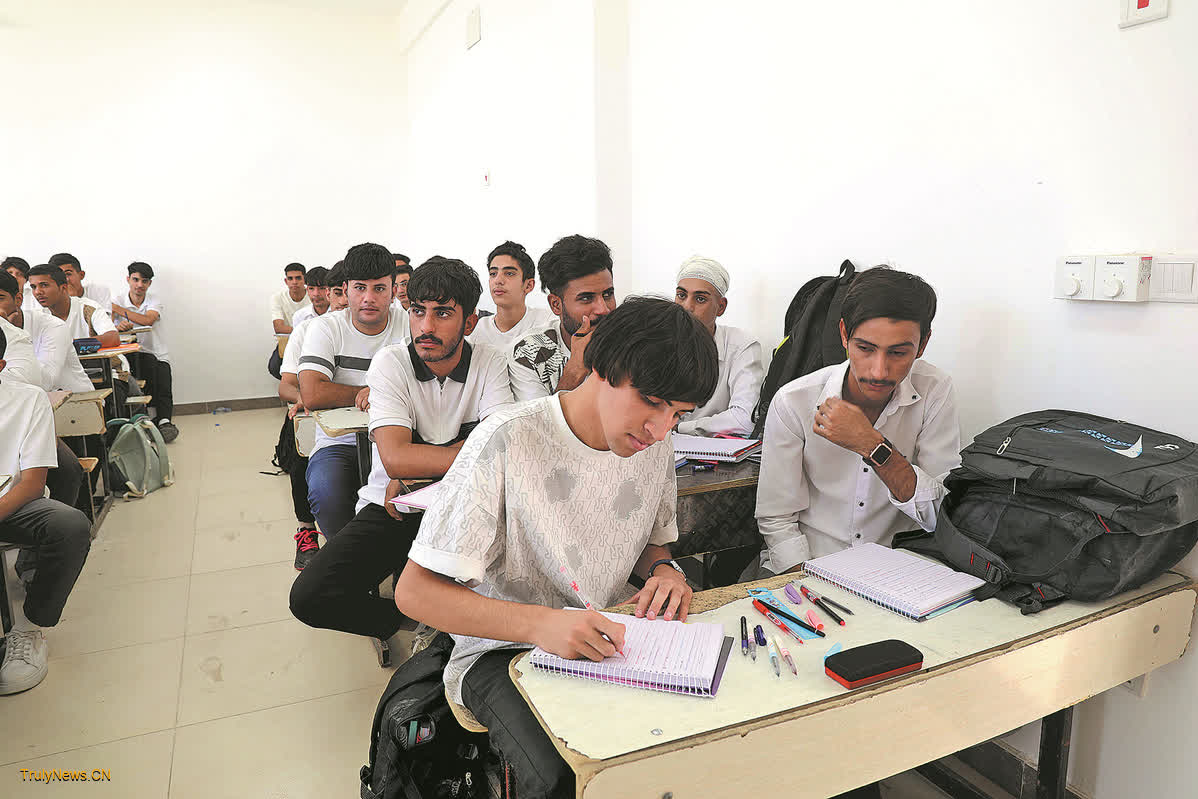
A student takes notes during a lesson in the classroom of the reconstructed school in Muthanna, Iraq, on Oct 8. (Photo/Xinhua)
He also highlighted the positive effects of the Belt and Road Initiative, emphasizing Iraq’s plans for continued collaboration with reputable Chinese companies to benefit society and secure a brighter future.
“The Iraqi government and people welcome this initiative, and we have witnessed the positive impact of many projects, such as this school-building effort, which serves a large portion of the Iraqi population,” Farhan said.